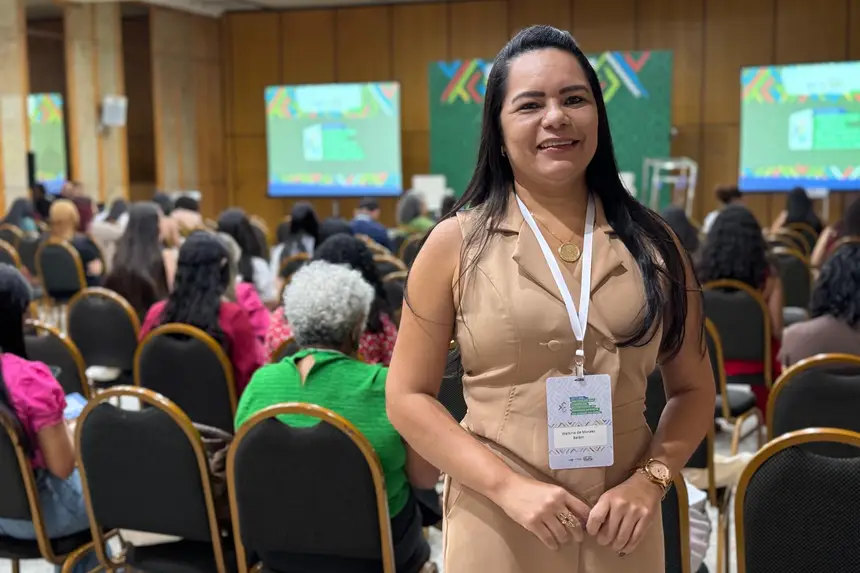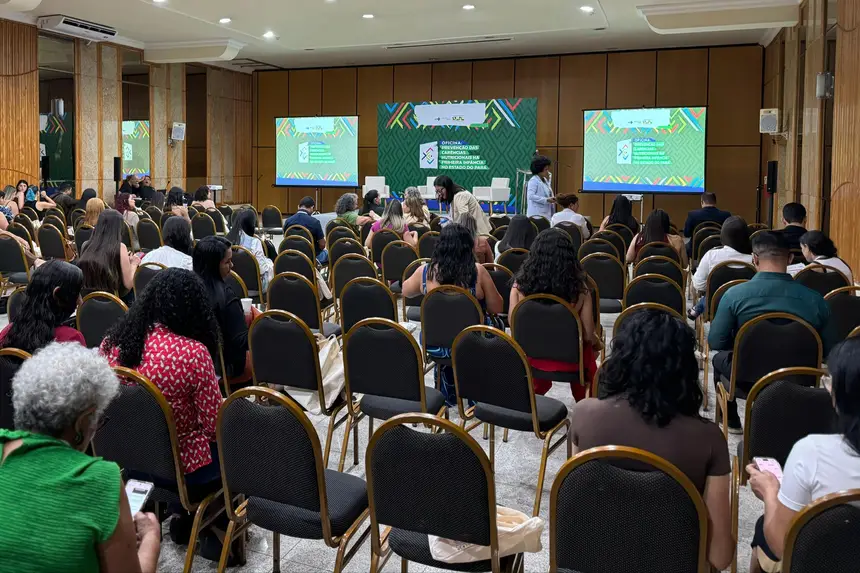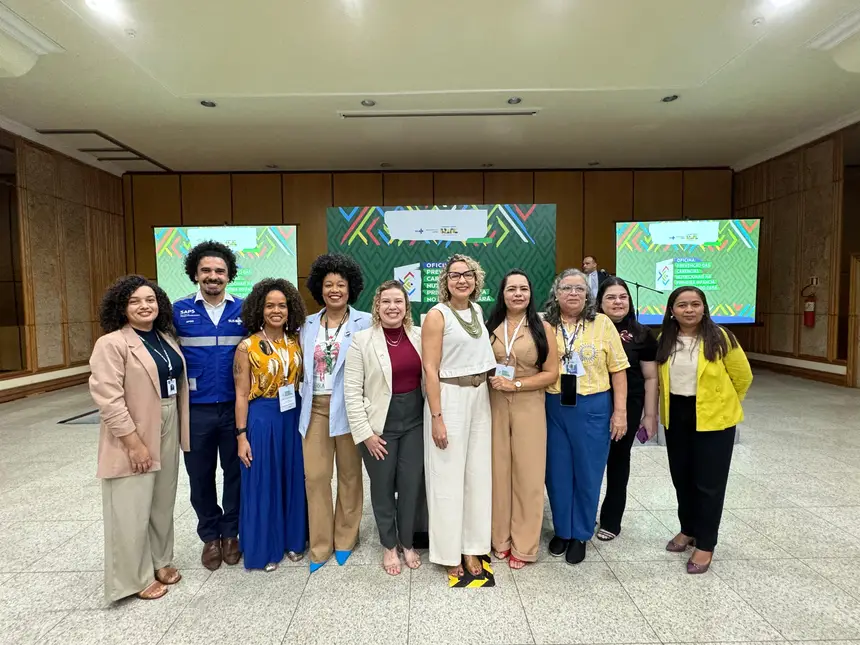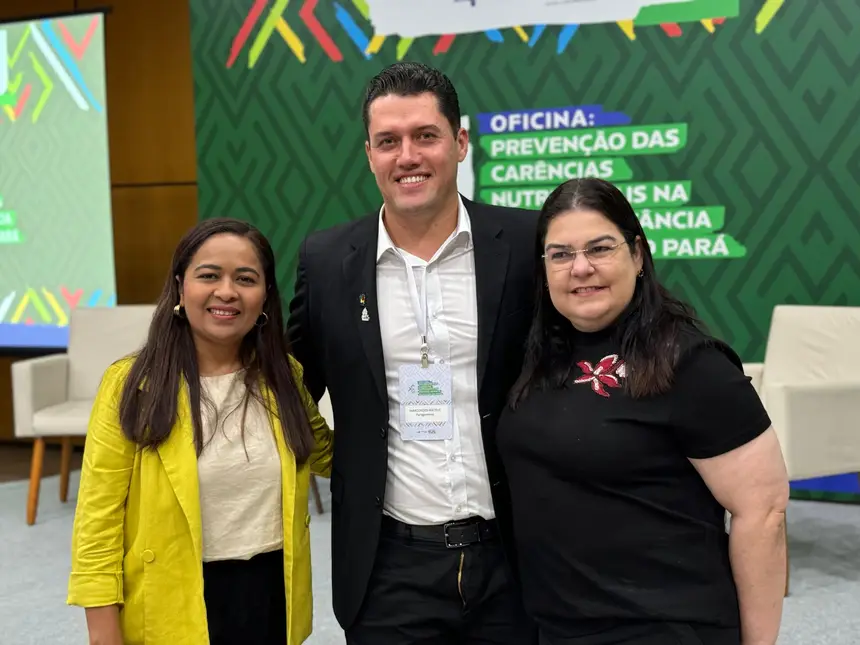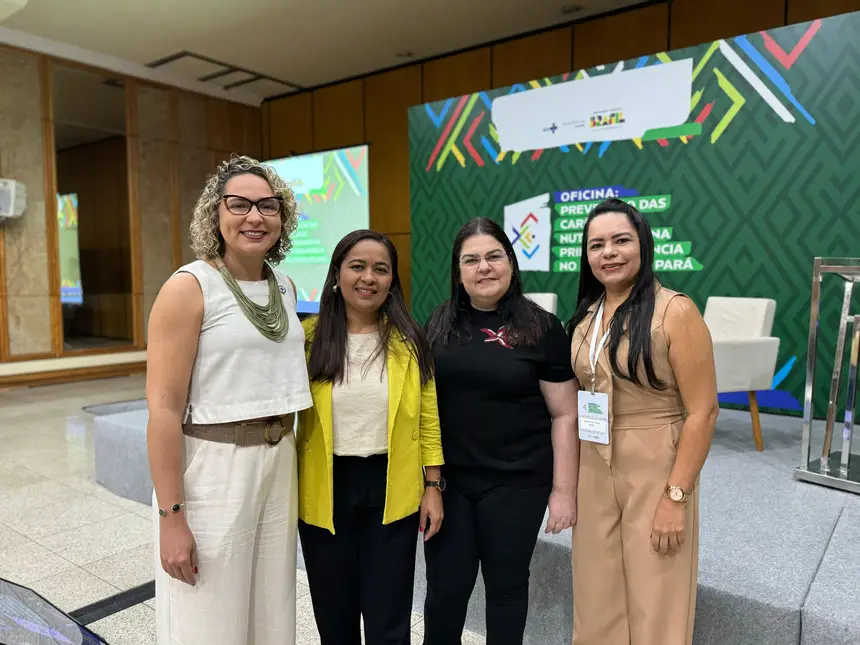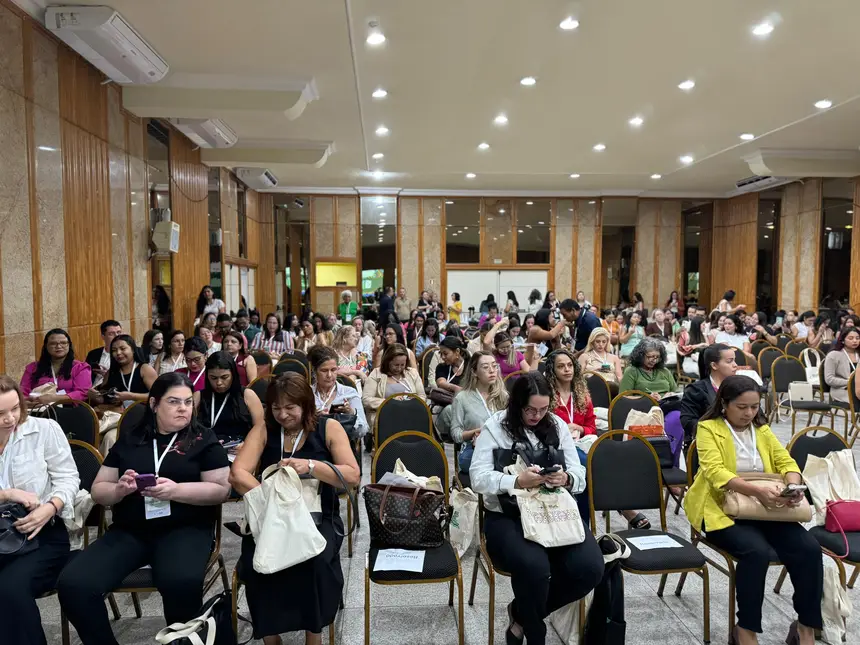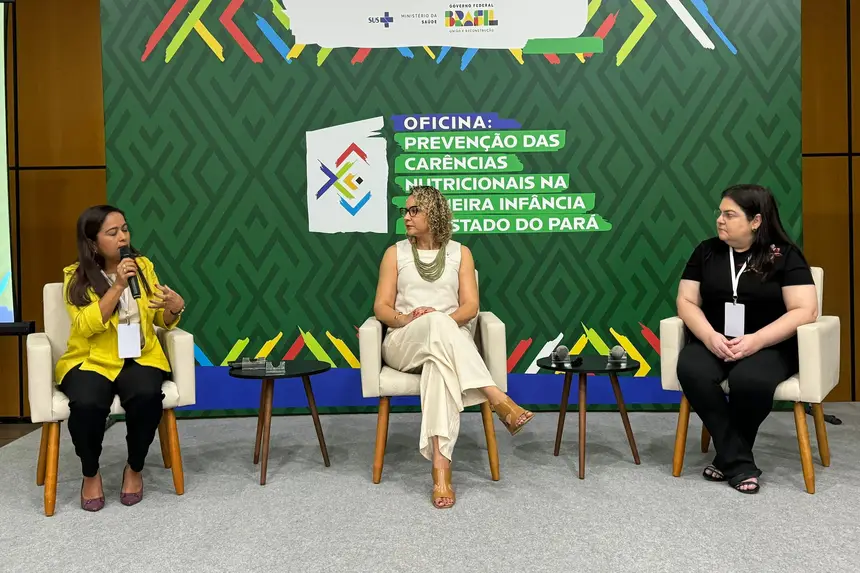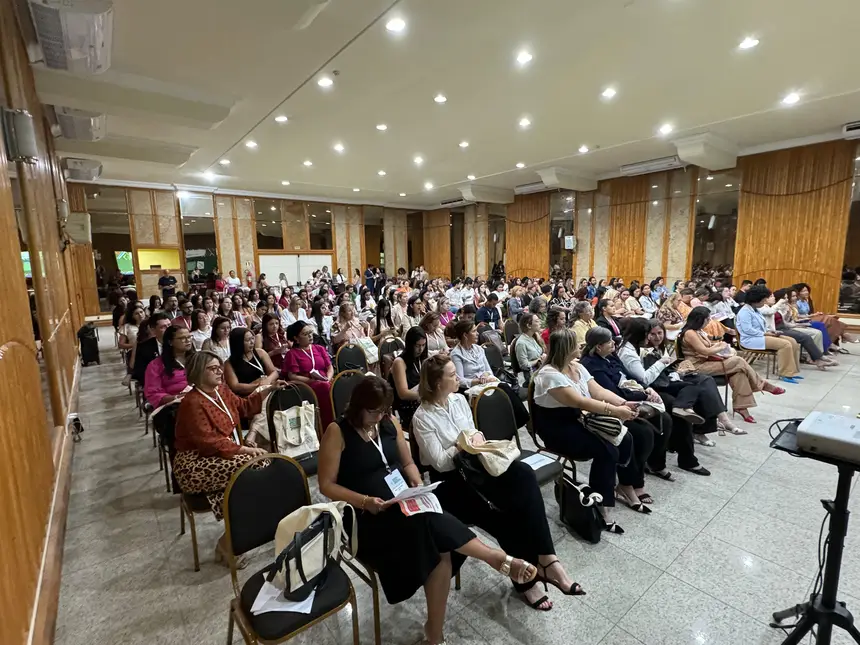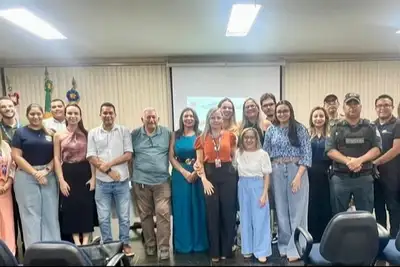Workshop discusses prevention of nutritional deficiencies in early childhood in Pará
Event promoted by the Ministry of Health, with support from Sespa, brings together managers and technicians to discuss the resumption of the NutriSUS strategy and strengthen actions against child malnutrition
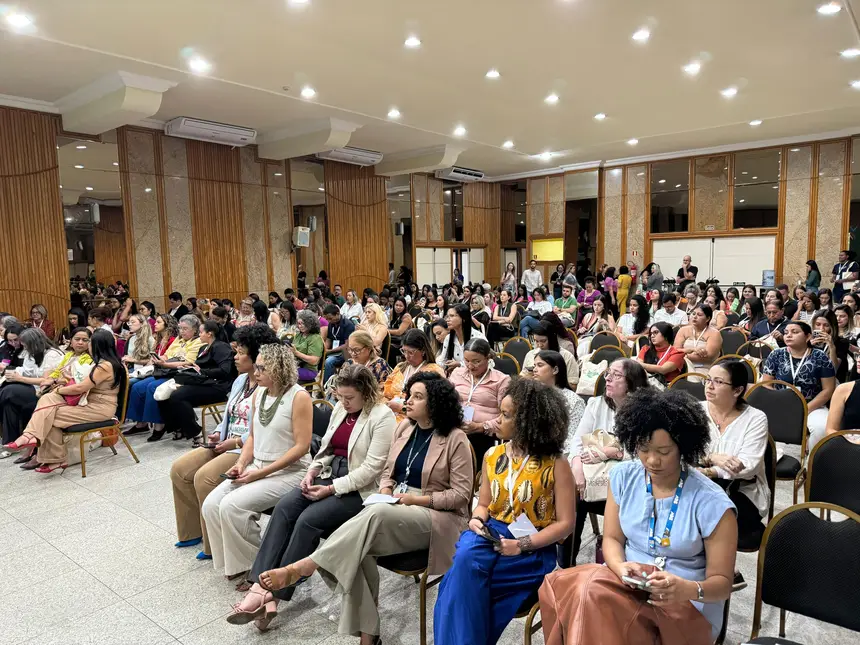
Emphasizing the resumption of the NutriSUS Strategy, the workshop "Prevention of Nutritional Deficiencies in Early Childhood in the State of Pará" was initiated this Thursday (7) in Belém, promoted by the Ministry of Health with support from the State Department of Public Health (Sespa). The event continues until Friday (8), from 8 am to 6 pm, bringing together managers and professionals from the health, social assistance, and food security sectors from the 144 municipalities in Pará.
The initiative is part of a series of workshops that the Ministry of Health is promoting in the seven states of the Northern Region to train managers and teams from Primary Health Care (APS), aiming to resume NutriSUS, a strategy for fortifying children's food with powdered micronutrients to prevent nutritional deficiencies in children aged 6 to 23 months. Pará is the fifth state to receive this action.
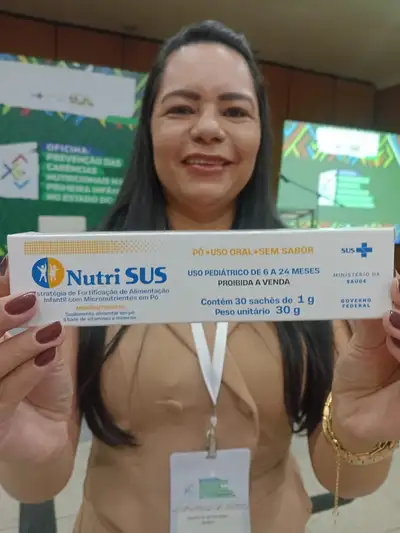
According to the nutrition coordinator of Sespa, Walkiria Moraes, the workshop is essential for aligning knowledge and strategies. "This initiative aims to prevent various forms of malnutrition through the distribution of sachets with micronutrients, which will now be administered directly by families in their homes. Previously, this fortification occurred in daycare centers and schools, and now it will be operationalized by the Primary Health Care network, which expands the reach of the strategy," explained Walkiria Moraes.
Distribution - The resumption of NutriSUS will occur in two cycles: the first, in 2025, will cover children aged 6 to 23 months, and the second, scheduled for 2026, will serve children aged 6 to 24 months in the 34 Indigenous Special Sanitary Districts (DSEIs). The new distribution model will be coordinated by Sespa, which will receive the sachets from the Ministry of Health and send them to the Regional Health Centers. These will pass them on to the municipal health departments, which will deliver them to the Basic Health Units.
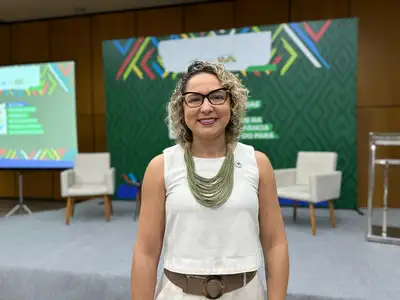
The general coordinator of Food and Nutrition at the Ministry of Health, Kelly Alves, highlighted that holding workshops in the Northern Region is a commitment made after the Child Malnutrition Seminar held in 2023 in Acre. "Last year, we managed to bring together state administrations, but we understood that it was necessary to get closer to the municipalities. Therefore, we decentralized the action and are traveling through the states. It is with joy that we see this auditorium full here in Belém. I thank the mobilization of Sespa, Cosems (Council of Municipal Health Secretariats), and each manager who is here," said Kelly Alves.
Representing the state health secretary, Ivete Vaz, the director of the Department of Health Care (DPAIS), Ana Paula Oliva Reis, also emphasized the importance of the event. "The Northern region is one of the most delicate when it comes to nutritional deficiencies. We still face high rates of infant mortality among children aged one to five, closely related to social conditions and nutrition. Therefore, moments like this are essential to think about practical solutions and strengthen the role of Primary Care in prevention," she stressed.
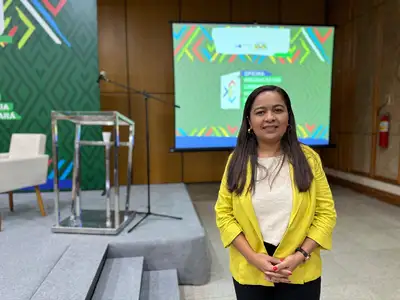
Working for the future - The health secretary of Breves, Jucineide Alves Barbosa, who presides over Cosems-PA, reinforced the role of the partnership between municipalities and the state. "The union between municipal and state health secretariats and the Ministry of Health is essential to ensure that this policy reaches the grassroots, where the most vulnerable population is. Working on nutrition from early childhood is ensuring a healthier future for our children," she reiterated.
Also present at the opening, the vice-coordinator of the Intersecretarial Chamber of Food and Nutritional Security of Pará, Nazaré Costa, reminded that preventing nutritional deficiencies is one of the priority goals of the new State Food Security Plan. "This discussion needs to start from breastfeeding, with food education actions in schools and families. Replacing a filled cookie with a fruit may seem simple, but it changes the child's perception and that of the entire household," she assured.
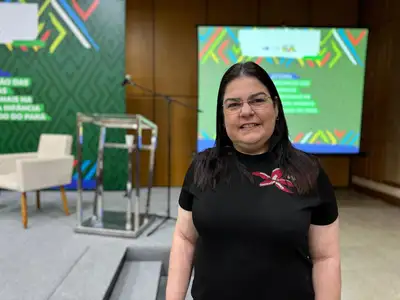
The workshop's program includes lectures, discussion panels, and practical activities aimed at implementing the NutriSUS strategy in the territories. Technicians from APS (Primary Health Care), references in nutrition, child health, pharmaceutical assistance, and health of the black population, as well as representatives from social participation councils and municipal health secretariats, are participating.
The event will conclude with the consolidation of proposals for the effective resumption of the NutriSUS strategy in all municipalities in Pará.


